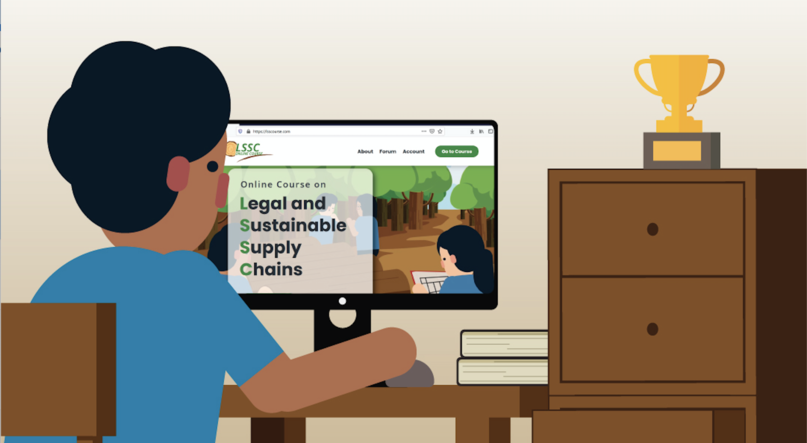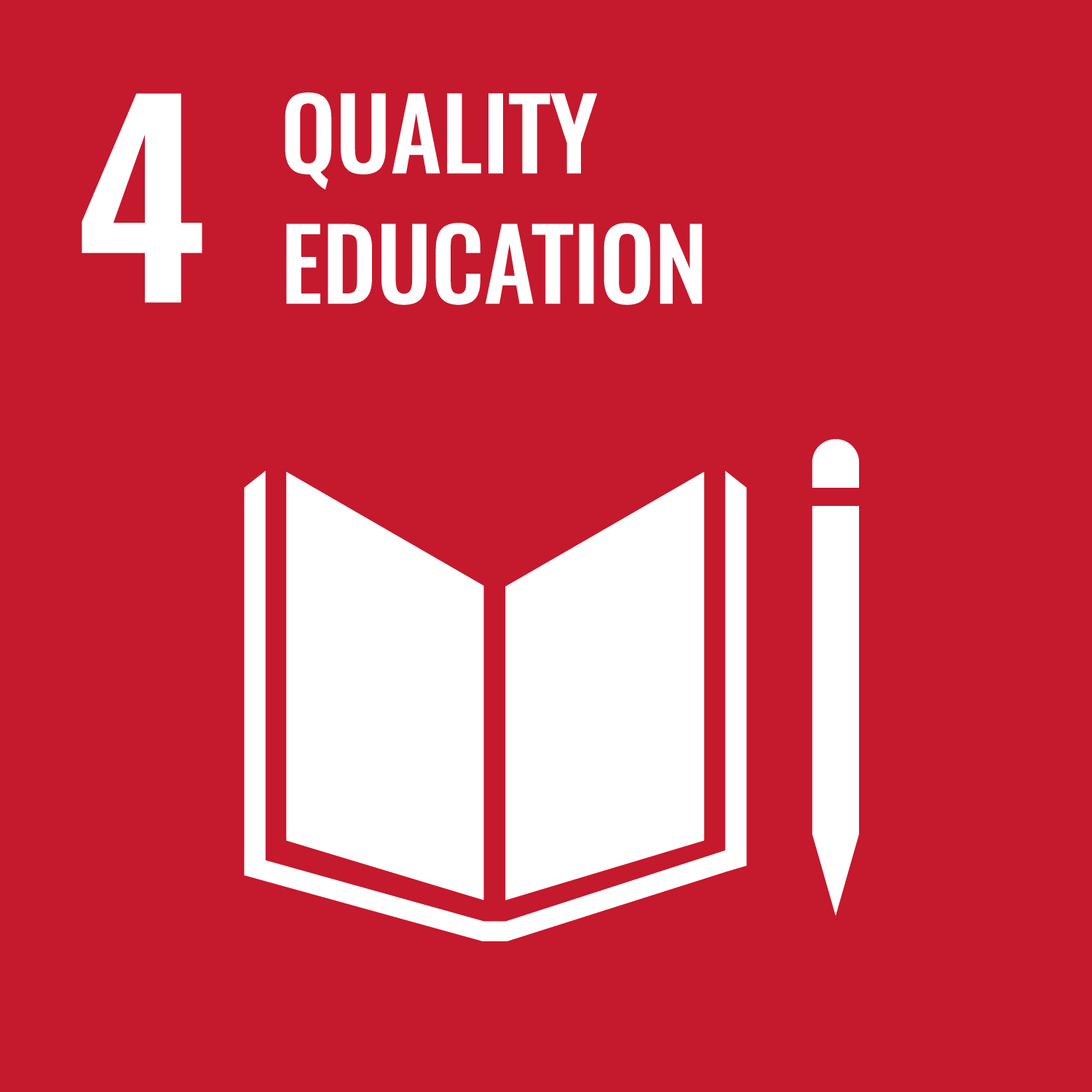ITTO launches e-course on legal, sustainable timber supply chains
23 June 2021, Rome, Italy

ITTO’s e-course on legal, sustainable timber supply chains is part of the Global Forest Education Project
Rome, Italy, 23 June 2021: A free online learning course launched today by ITTO as part of a global effort to improve forest education will assist entrepreneurs, forestry professionals, government officials and students in understanding legal and sustainable timber supply chains, thereby supporting businesses to meet market requirements for legality and sustainability and improve their forest practices.
ITTO’s Legal and Sustainable Supply Chains (LSSC) learning course has four modules. The first module introduces participants to sustainable forest management, including reduced impact logging and forest landscape restoration. The second outlines timber legality assessment and the third explores how meeting legality requirements in forest management can help ensure sustainable outcomes. The fourth learning module examines marketing aspects that users should know to maintain, expand and sustain their legal and sustainable forest-based businesses. Participants will receive a certificate for successfully completing the course.
Announcing the launch of the course, ITTO Officer-in-Charge, Dr. Steven Johnson, said that hundreds of millions of people depend on timber and other forest products for income, but their livelihoods are threatened by unsustainable practices and illegality. Moreover, he said, the sustainable use of forest resources is essential for protecting biodiversity and maximizing the contributions of forests as nature-based solutions to climate change.
“Legal and sustainable supply chains of tropical wood and tropical forest products are therefore crucial both for the livelihoods of forest-dependent people and for ensuring the health of our environment,” said Dr. Johnson. “This training course provides a pathway towards sustainability.”
The LSSC training course, which is available in English, contributes to several global Sustainable Development Goals, especially SDG 4 (“quality education”), SDG 9 (“industry, innovation and infrastructure”), SDG 12 (“responsible consumption and production”) and SDG 15 (“life on land”).
The LSSC course is part of the Global Forest Education Project, which is managed by three international organizations—ITTO, the Food and Agriculture Organization of the United Nations and the International Union of Forest Research Organizations. The goal of the project, which is financed by Germany’s Federal Ministry of Food and Agriculture (BMEL), is to catalyze, accelerate and enhance broad efforts in forest education at the national and local levels in developing countries and to address existing deficiencies in forest education. The project will help prepare the foundation for a longer-term effort in forest education, envisaged as a joint initiative involving multiple international organizations, including members of the Collaborative Partnership on Forests.
The LSSC training course has been designed based on ITTO’s wide-ranging work on the production, trade and use of forest products, especially its Programme on Legal and Sustainable Supply Chains of Tropical Wood and Tropical Forest Products. The aim of that programme is to assist governments and practitioners in building the institutional policy frameworks required to enable legal and sustainable supply chains in the tropical forest sector.
Participate in the LSSC training course for free here.
Watch the promotional video, Introduction to the online learning course on Legal and Sustainable Supply Chains (LSSC)



